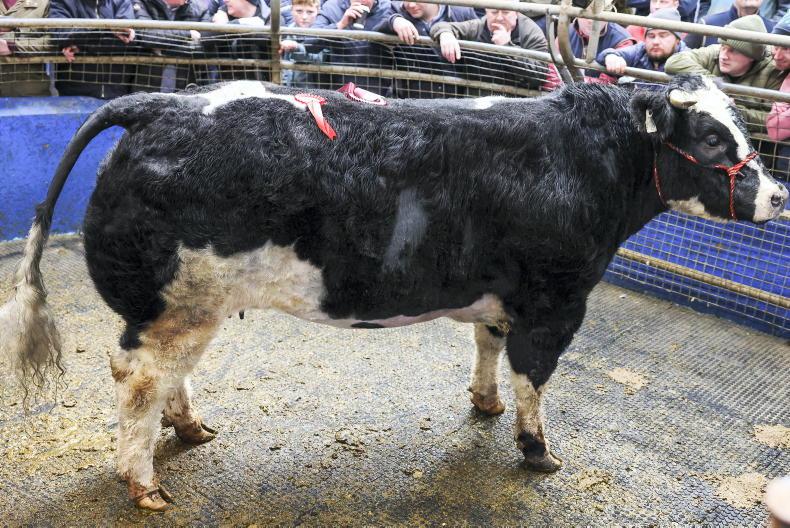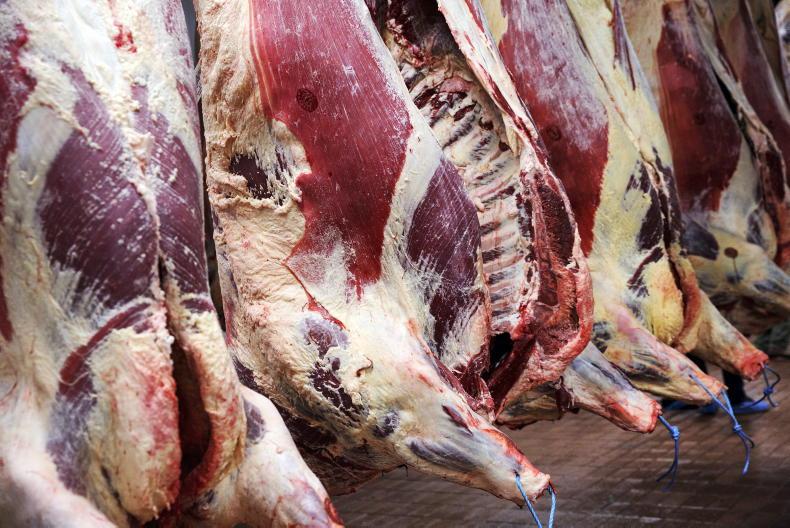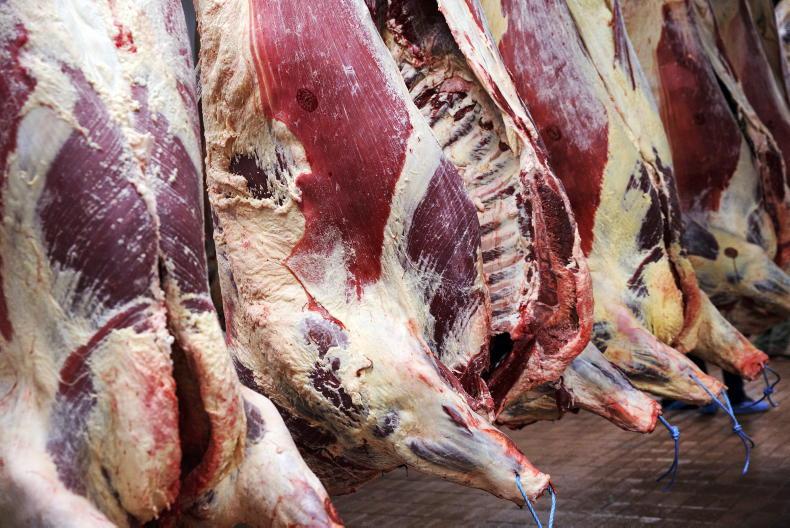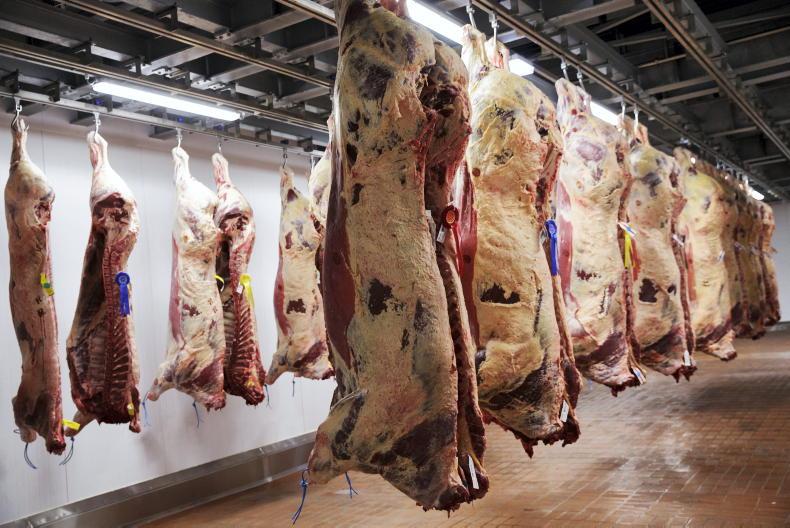An east-west divide remains in the beef trade this week, with most eastern and southern factories ahead by 5c/kg on this week’s quotes.
Wet weather in the west is adding more numbers to factory procurement lists and keeping the ball at the factory’s feet.
Bullocks continue to be quoted at €4.65/kg with bigger suppliers and those dealing with numbers sill able to get a €4.70/kg base price.
Heifers continue at where they were last week, generally working off a base of €4.70/kg
Angus and Hereford cattle are still in high demand, with up to 30c/kg bonuses being paid for in-spec Aberdeen Angus bullocks and heifers this week.
Bulls are being quoted at €4.70/kg to €4.75/kg for R and U grades, with a few regular, bigger suppliers still squeezing €4.80-€4.85/kg for U grade bulls.
Under-16-month bulls are working off a base of €4.75/kg to €4.80/kg, although numbers are relatively small at this time of year
Friesian bulls are being quoted at €4.50/kg to €4.60/kg, depending on weight and flesh cover.
The cow trade has come under a little pressure this week, with R grades being quoted at €4.50/kg to €4.60/kg depending on age and weight. However, those with numbers have been able to strike deals 5c to 10c/kg higher than the official quoted prices. O grading cows are back at €4.40/kg to €4.50/kg with P grading cows being quoted at €4.20/kg to €4.30/kg
Bord Bia market tracker
The Bord Bia Irish prime composite price for the week ending 24 September was €4.90/kg while the prime export benchmark price was €5.20/kg for the same week. This represents a 30c gap or €105/head on a 350kg carcase.
Across the EU, young bull prices have remained steady in recent weeks, with R3 young bulls at €5.25/kg. This is 35c ahead of an R grading Irish young bull or €140/head on a 400kg carcase.
Last week’s kill came in at just over 38,000, over 1,000 head up on the previous week. The bullock kill came in at 19,482, which is the biggest bullock kill so far in 2022. The heifer kill was also up 400 head with both the cow and bull kill remaining pretty steady.
There are still reports of underfleshed cattle being slaughtered in factories, with some farmers losing out on their in-spec bonus for not meeting the required fat score.
With prices of finishing concentrates heading towards €400-€420/t, some finishers have opted to delay feeding at grass, with more feeding a reduced rate due to price increases.
This, coupled with the drought in the south of the country, has meant cattle that would have traditionally been targeted for September and October finishing are more backward than other years and in some cases these cattle may be better to come in for a short sharp finish where flesh cover is lacking.
This will be especially applicable if the weather turns wet in the next week and meal feeding becomes more difficult around troughs
IFA livestock chair Brendan Golden said: “Winter finishers are in the process of making key decisions for the coming months. Factories must reflect the realities of the current market in stronger prices now and offer winter finishers minimum price guarantees for their cattle for this winter and next spring. Meat factories and multinational retailers are acutely aware of the increased cost of production and must provide surety for farmers in the form of minimum price guarantees to maintain our hard-earned consistent year-round supply of cattle.”
Northern Ireland
It is a case of steady as she goes in Northern Ireland with no movement on cattle prices this week. Base quotes remain on 426p/kg (€5.16/kg incl VAT) for U-3 grading animals, although most deals for steers remain on 438p/kg (€5.31/kg), with 440p/kg (€5.34p/kg) on offer for heifers. Quotes on cull cows start on 365p/kg (€4.42/kg) for R3 animals with deals of 380p/kg (€4.60/kg) available.










SHARING OPTIONS